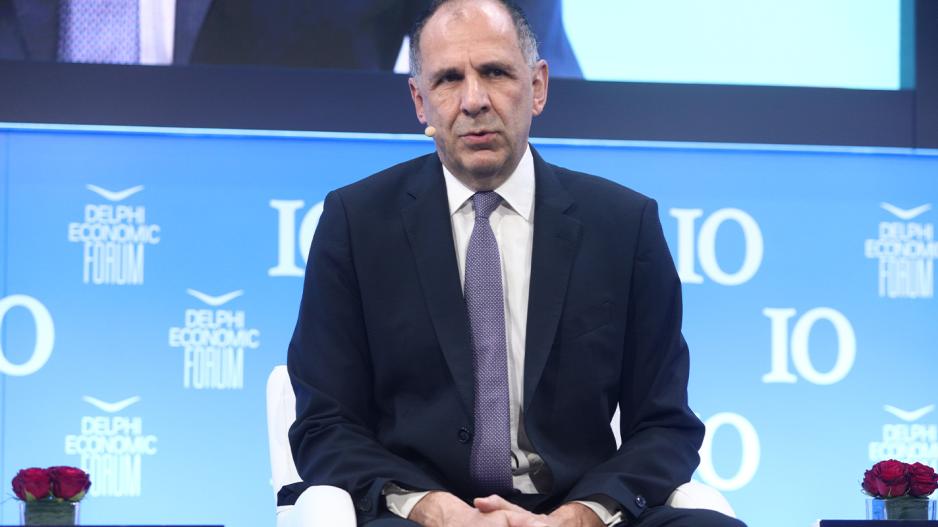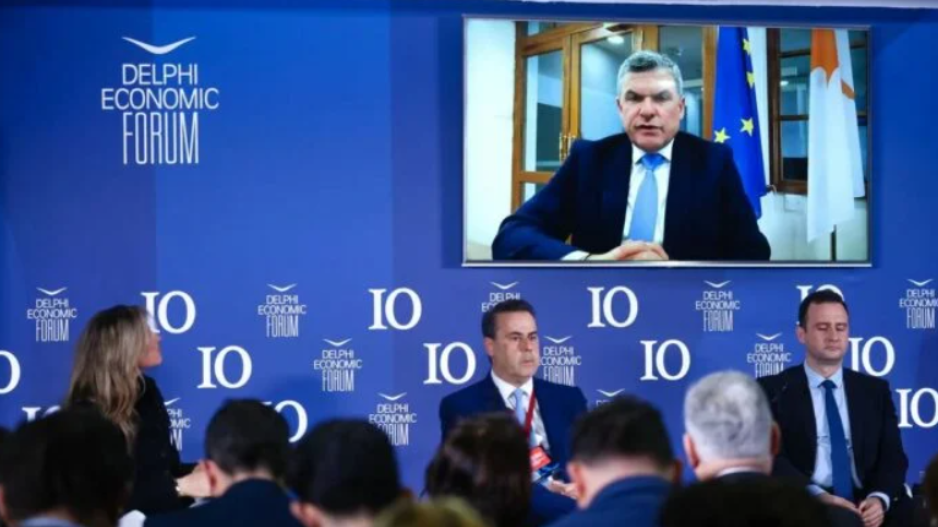Great Sea Interconnector to Proceed, Says Cyprus Energy Minister
Papastasiou Confirms Strong Investor Interest and Calls for More EU Support for the GSI Submarine Power Cable
Energy, Commerce and Industry Minister George Papastasiou expressed optimism that the Greece–Cyprus–Israel electricity interconnection project (Great Sea Interconnector) will proceed as planned, citing strong investment interest from major players.
Speaking on Thursday at the Delphi Economic Forum, Papastasiou emphasized—according to a press release—that this project will end Cyprus’ energy isolation. He clarified that it is not merely a bilateral or trilateral initiative but “a European project of Common Interest, which the EU has heavily supported, providing €657 million in funding through the Connecting Europe Facility.”
He also called for more active support from the European Union, stressing that “strong investor interest” exists from key global stakeholders. “I am optimistic that diplomacy and reason will prevail. We want stronger European participation—through both statements and actions,” he concluded.

Papastasiou also underscored the significance of American companies' interest in the Eastern Mediterranean, particularly amid growing geopolitical and economic turbulence. Addressing the geopolitical dimension of energy projects in the region, he noted three ways to tackle geopolitical challenges: diplomacy, the involvement of economic interests from influential countries, and, as a last resort, what he referred to as the “undesirable” path of military action.
The Minister highlighted key regional cooperation agreements, citing Egypt as a notable example. He reiterated the strong interest of U.S. companies in the Eastern Mediterranean, particularly mentioning Chevron. He confirmed that a high-level meeting took place with Chevron’s CEO, whose company is active in Israel, Egypt, and Cyprus, and who also expressed interest in Greece.
Greek Environment and Energy Minister Stavros Papastavrou also described the submarine electricity interconnection project between Greece, Cyprus, and Israel as “crucial” for ending Cyprus’ energy isolation and expressed optimism about its progress. However, he emphasized the need for careful and institutional management by both countries and the EU.

Greek Foreign Minister Giorgos Gerapetritis also spoke at the Delphi Forum, addressing Turkish opposition to the project. He affirmed that the Greece–Cyprus electricity interconnection is a European Project of Common Interest, partly funded by the EU and fully compliant with international law.
Highlighting the energy importance of the project—especially for Cyprus—he stressed that it effectively ends the country’s energy isolation and brings multifaceted benefits. “Whether the project aligns with international law is absolutely clear,” he added.
“Fortunately, we all operate within an international security architecture that we must respect—and that is international law. It is not open to multiple interpretations. We will not act unilaterally or in any way that violates it, and we expect the same level of respect from others,” he stated.
Answering a related question, Gerapetritis noted that Greece is fully prepared for all possible scenarios, including situations similar to the recent incident near Kasos.
Regarding the restart date for cable installation, he assured that the Greek government and the Ministry of Foreign Affairs are doing everything possible to ensure no disruption to the interconnection.
“Cable surveying and laying are protected under international law and thus require no external permission. We are planning all necessary actions. This is a technically complex task involving multiple ministries. Research and installation will resume at the appropriate time. There was never a binding deadline, and we will proceed as required and at the appropriate moment,” he concluded.






